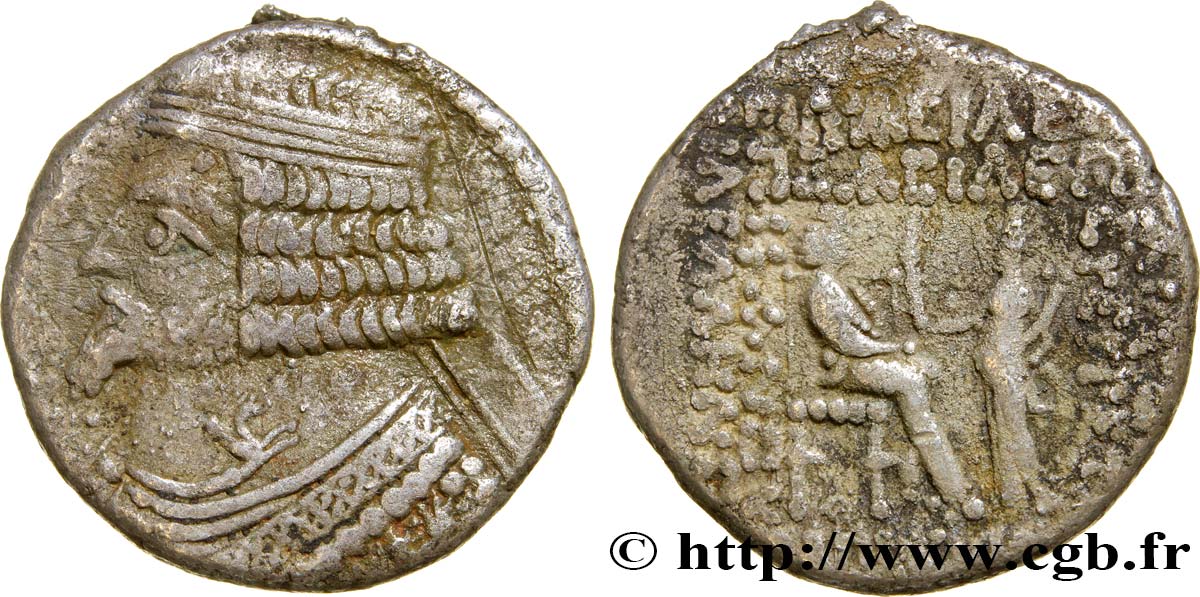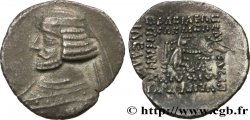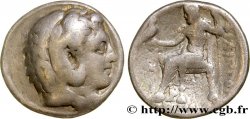E-auction 171-106104 - bgr_399249 - PARTHIAN KINGDOM - PHRAATES IV Tétradrachme
You must signin and be an approved bidder to bid, LOGIN TO BID. Accounts are subject to approval and the approval process takes place within 48 hours. Do not wait until the day a sale closes to register. Clicking on « bid » constitutes acceptance of the terms of use of cgb.fr private e-auctions.
Bids must be placed in whole Euro amounts only. The sale will start closing at the time stated on the item description; any bids received at the site after the closing time will not be executed. Transmission times may vary and bids could be rejected if you wait until the last second. For further information ckeck the E-auctions F.A.Q.
NO BUYER'S FEE.
NO BUYER'S FEE.
| Estimate : | 175 € |
| Price : | 43 € |
| Maximum bid : | 100 € |
| End of the sale : | 25 July 2016 14:03:30 |
| bidders : | 6 bidders |
Type : Tétradrachme
Date: n. d.
Mint name / Town : Séleucie du Tigre, Parthie
Metal : billon
Diameter : 27,5 mm
Orientation dies : 12 h.
Weight : 14,98 g.
Rarity : R1
Coments on the condition:
Exemplaire sur un flan bien centré, court sur la légende au revers. Beau portrait de Phraates IV. Frappe molle au revers. patine grise granuleuse
Catalogue references :
Obverse
Obverse legend : ANÉPIGRAPHE.
Obverse description : Buste de Phraates IV à gauche, tête nue avec un bandeau triple, sans nœud qui tombe derrière la tête, la chevelure crantée couvrant l’oreille, la barbe courte et pointue.
Reverse
Reverse description : Phraates IV assis à gauche sur un trône à dossier tourné à droite, recevant une palme de Tyché debout à gauche dans le champ à droite, drapée, tenant une corne d’abondance.
Reverse legend : BASILEWS/ BASILEWN/ ARSAKOU// EUERGETOU/ DIKAIOU// EPIFANOUS/ FILLENHNOS// APEL
Reverse translation : (Roi des rois Arsace, bienfaiteur, juste, glorieux, philhellène).
Commentary
Poids très léger. Sur cet exemplaire, année et mois ne sont pas visibles, hors champ. Avec l’intégralité de son argenture superficielle. L’ère parthe commençait en 312 avant J.-C., reposant sur l’ère séleucide et la dédicace de Séleucie du Tigre par son fondateur, Séleucus Nicator. Le début de l’année parthe était fixé au mois d’octobre (Dios) et basé sur un calendrier lunaire avec un mois intercalaire.








 Report a mistake
Report a mistake Print the page
Print the page Share my selection
Share my selection Ask a question
Ask a question Consign / sell
Consign / sell
 Full data
Full data











